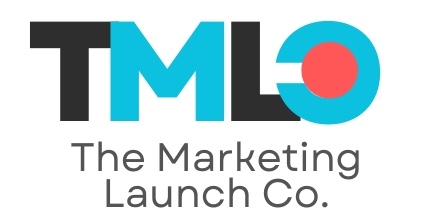This guide outlines the essential do’s and don’ts to help you write effective website copy that resonates with your target audience and improves your online visibility.
How can I effectively speak to my ideal customers?
DO: Call out your ideal people.
To engage your audience, your website copy should speak directly to your ideal customers. Identify who they are and what they need. Use language that resonates with them, demonstrating that your products or services are designed specifically for their needs.
Good Example:
“Are you a busy entrepreneur looking to streamline your operations? Our project management software is tailored to help you save time and increase productivity.”
Bad Example:
“We offer project management software that is great for everyone. Our product has won multiple awards and is the best in the industry.”
DON’T: Make it all about you.
Avoid starting your website copy with statements about your achievements or qualifications. Instead, focus on how your business can solve their problems.
Good Example:
“Imagine having more time to focus on what you love. Our services can help you achieve that.”
Bad Example:
“Our company has been in business for 20 years, and we are the best in the industry. We have the most advanced tools available.”
What should I know about my audience’s goals and pain points?
DO: Tap into their goals and worries.
Understanding the challenges and aspirations of your audience is crucial for effective website wording.
Good Example:
“Are you struggling to find reliable suppliers? Our platform connects you with trusted vendors, ensuring you have the resources you need to succeed.”
Bad Example:
“Our platform offers a wide variety of suppliers. Sign up today to see our extensive list.”
DON’T: Overwhelm with information.
Simplicity is key. Small business owners often feel the need to provide extensive information, but overwhelming your audience with details can backfire.
Good Example:
“Join our service today and gain access to hundreds of suppliers who are ready to work with you.”
Bad Example:
“Our platform includes various features such as a vast database of suppliers, integrated communication tools, and analytics to help you understand market trends.”
How can I effectively highlight the benefits of my offerings?
DO: Highlight the benefits before you sell.
Customers need to see the value in your products or services before making a purchase.
Good Example:
“With our marketing automation tools, you can save hours each week, allowing you to focus on growing your business and connecting with your customers.”
Bad Example:
“Our marketing automation tools come with a wide range of features, including email scheduling, analytics, and customer segmentation.”
DON’T: Hard-sell right away.
While you want to encourage sales, avoid aggressive sales tactics early on.
Good Example:
“Start your free trial today and discover how our tools can transform your marketing efforts.”
Bad Example:
“Buy now and experience the best marketing automation available on the market!”
How important are keywords in my website copy?
DO: Include keywords.
For small business owners, incorporating relevant keywords in your website copy is crucial for search engine optimisation (SEO).
Good Example:
“Affordable web design services for small businesses in [Town Name]. Let us help you create an online presence that attracts customers.”
Bad Example:
“We offer various services related to web design and development, including graphics, layout, and various features that are available.”
Should I include customer reviews on my website?
DO: Show them social proof.
Social proof can significantly influence purchasing decisions. Dot them around your website rather than all on one page.
Good Example:
“Here’s what our clients have to say: ‘Thanks to [Your Business Name], I saved over 10 hours a week!’ – Sarah T.”
Bad Example:
“We have lots of happy customers! You should try our services.”
How can I craft compelling website copy?
By following these do’s and don’ts on your small business website, you can create compelling web wording that connects with your audience, enhances your online presence, and drives conversions.
Focus on understanding your customers’ needs, effectively communicating the benefits of your offerings, and utilising SEO strategies to improve your visibility.
With thoughtful, targeted website wording, you can turn visitors into loyal customers and foster long-term relationships.


